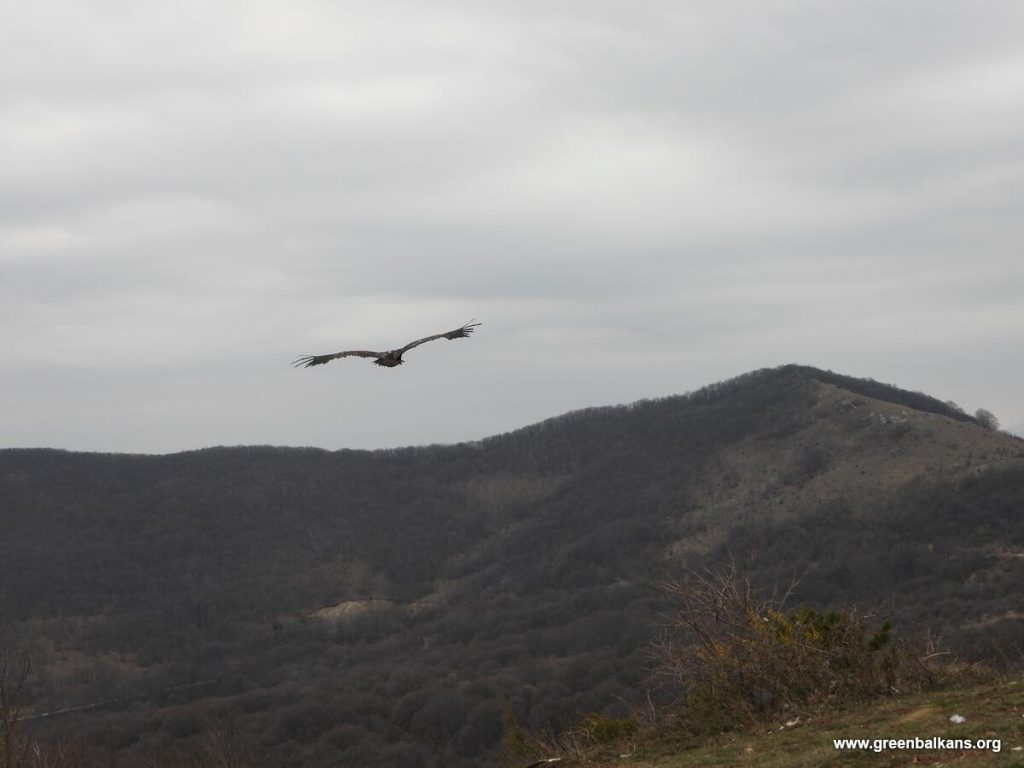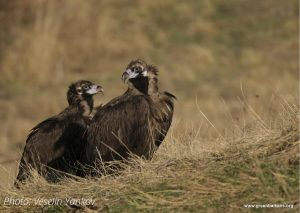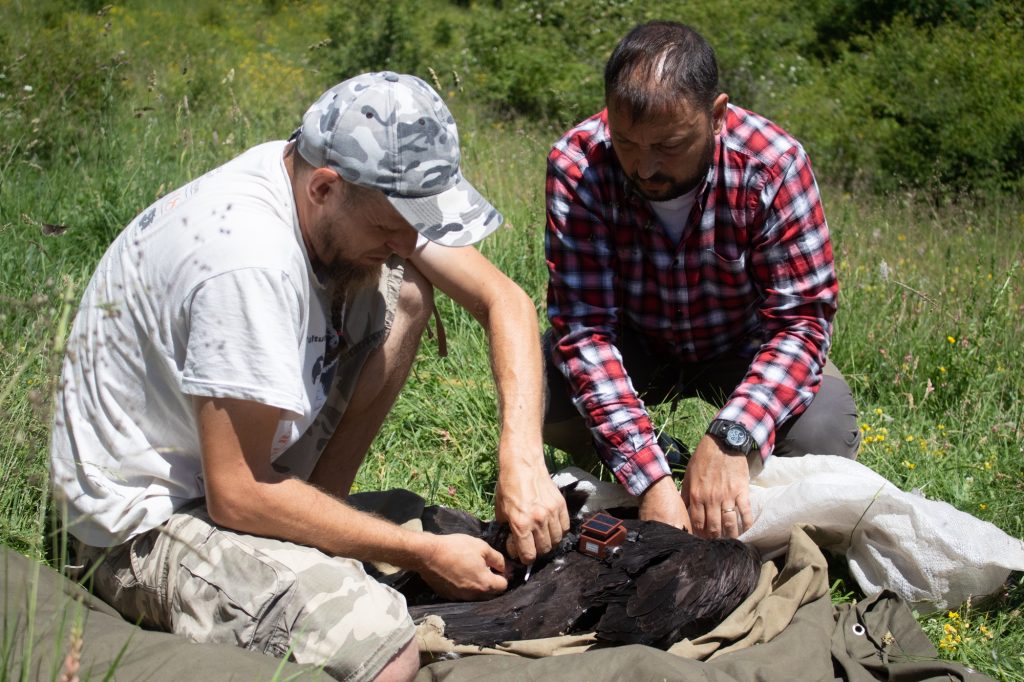On June 2, Kutelka, one of Bulgaria’s most iconic Cinereous Vultures, was found dead. She was an active breeding adult, a fighter, and a symbol of our conservation efforts. Her story began in Spain and ended in the skies of Bulgaria after many misadventures and impressive milestones.

A rough start
Kutelka was one of the many Cinereous Vultures (Aegypius monachus) rescued by AMUS in Spain and donated by the Junta de Extremadura to the Vultures Back to LIFE project. In 2018, she arrived in Bulgaria with a chance to start anew—a chance that would be tested time and again.
After a period of acclimatisation, thanks to the tireless work of Green Balkans , Fund for Wild Flora and Fauna and the partners, Kutelka was released into the wild on 26 March 2019 in Bulgaria’s Sinite Kamani Nature Park – also known as Blue Stones Nature Park. Her name comes from one of the park famous cliffs, visible from the acclimatisation aviary.
Unfortunately, life in the wild is not easy, especially for young vultures. A month after her release, she flew to Romania, where she was rescued – exhausted and underweight – by the Milvus Group y ACDB – Action for Wildlife.
Released again, she faltered once more. In August of the same year, the Green Balkans staff rescued her again in Panicheri (Bulgaria). After a month of dedicated attention, the team brought her in Bulgaria’s Blue Stones Nature Park, where her story started, and let her try again.


A historical milestone

Kutelka spent a couple years travelling without further accidents. By 2021, she had become one of the most well-travelled Cinereous Vultures in Europe. In three months, she covered over 16,000 km and flew through Serbia, Croatia, Austria, Slovenia, Hungary, and Romania.
Somewhere along the way, she also found her lifelong partner. She paired with Vrachanski Balkan, another Spanish vulture released in Bulgaria, and finally settled in the Western Balkan Mountains.
In early April 2022, the pair welcomed their first chick—Ponora, named after Ponor, an area part of the Natura 2000 network in Bulgaria. It was a moment that made history: the first wild-hatched Cinereous Vulture in the Western Balkan Mountains in nearly a century, and the second in Bulgaria since the species’ reintroduction. This chick symbolised more than just a conservation milestone—it was proof that decades of tireless effort, international cooperation, and hope could bring a species back from the brink.



A heavy-hearted farewell
This year she successfully hatched a chick again. Yet, in an instant, tragedy struck: she died, leaving her chick orphaned—but alive. The local team immediately rescued it and implemented all the due protocols to investigate on Kutelka death. The case is still under investigation by the Bulgarian Ministry of Interior.
Kutelka’s journey wasn’t just her own; it was emblematic of our collective effort to restore her species in Europe. From Spain to Bulgaria, from her struggles to parenthood, she carried our hopes and vision. She showed us that no matter how many times you fall, you can always rise again. She lives on in Ponora and in her second chick — a testament to the dedication of all who cared for her.
We express our deepest gratitude for every hand that helped Kutelka in her journey and focus on the future care of the chick she left behind. We also renew our commitment to protecting Bearded Vultures across Europe, giving her legacy a safer place to thrive.
The Bearded Vulture LIFE Project

This historic release is part of The “Bearded Vulture LIFE” project – a comprehensive initiative, aiming to restore the Bearded Vulture and Cinereous Vulture across Bulgaria and the Balkans. With a budget of €5.17 million, co-funded by the European Union’s LIFE Programme, the project commenced in August 2023 and is expected to continue until 2030. Building upon the achievements of its predecessor, “Vultures Back to Life,” it is coordinated by Green Balkans, with five more partner organizations within Bulgaria, including the Fund for Wild Flora and Fauna, Foundation EkoObshtnost, EVN – Elektropradelenie Yug EAD, Severozapadno Darzhavno Predpriyatie – Vratsa, and “Sinite kamani” Nature Park Directorate. Furthermore, the project benefits from international collaboration, including the Vulture Conservation Foundation (VCF), responsible for the translocation and safeguarding of captive-bred birds secured for release. Additionally, the partner Milvus group is responsible for executing conservation efforts in Romania.




